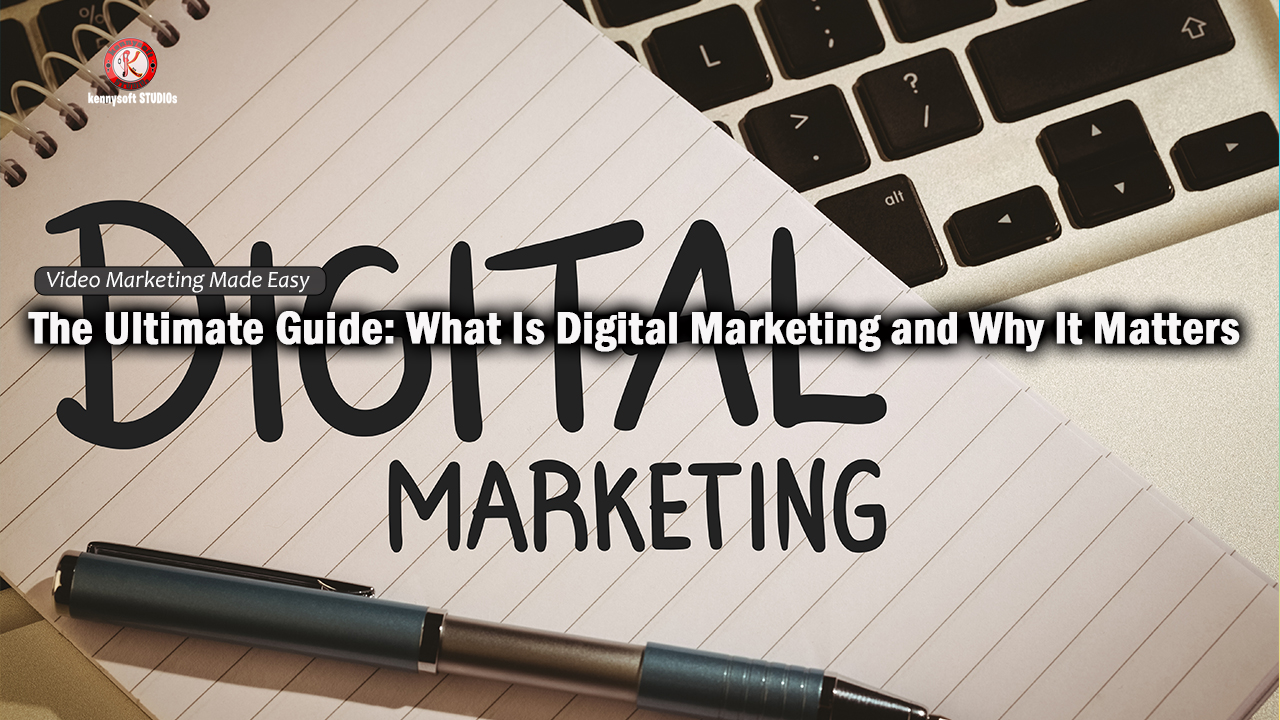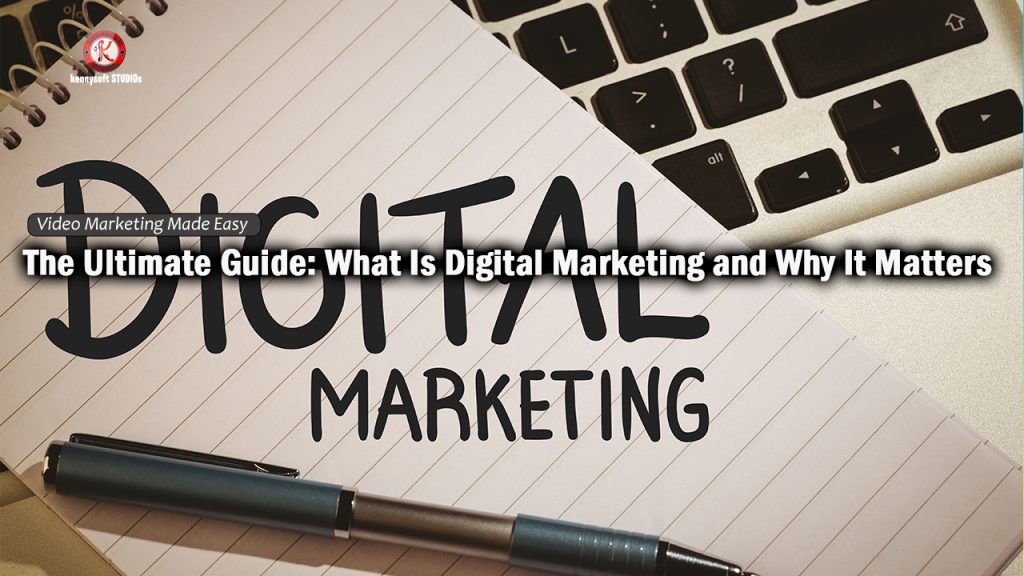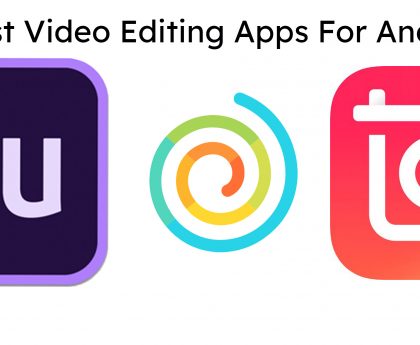- Introduction to Digital Marketing
- Why Digital Marketing Is Important
- The Role of Digital Marketing in Business Growth
- Different Aspects of Digital Marketing
- Understanding the Digital Marketing Landscape
- Key Digital Marketing Channels
- Steps to Develop a Digital Marketing Strategy
- Effective Digital Marketing Tactics and Techniques
- Measuring the Success of Digital Marketing Campaigns
- The Future of Digital Marketing
- Conclusion
Introduction to Digital Marketing
Businesses need to adapt and embrace new strategies to reach their target audience effectively. One such strategy that has gained immense popularity is digital marketing. Put simply, digital marketing refers to the promotion of products or services using various digital channels such as search engines, social media platforms, email, and websites. It encompasses a wide range of activities aimed at attracting, engaging, and converting potential customers into loyal ones. As a business owner or marketer, understanding what digital marketing is and why it matters is crucial in staying ahead of the competition.
Why Digital Marketing Is Important
Digital marketing has become an integral part of any successful business strategy for several reasons. Firstly, it provides businesses with the opportunity to reach a global audience. Unlike traditional marketing methods, digital marketing allows businesses to target specific demographics, interests, and locations, ensuring that their message reaches the right people. This targeted approach not only saves valuable advertising dollars but also increases the chances of converting leads into customers.
Secondly, digital marketing offers a level of measurability and analytics that traditional marketing cannot match. Through various tools and platforms, businesses can track and analyze the performance of their marketing campaigns in real-time. This data-driven approach allows businesses to make informed decisions, optimize their strategies, and achieve better results.
Lastly, digital marketing provides a platform for businesses to build and nurture relationships with their customers. Through personalized and interactive content, businesses can engage with their audience, address their needs, and provide value. This not only improves customer satisfaction but also increases brand loyalty and advocacy.
The Role of Digital Marketing in Business Growth
Digital marketing plays a crucial role in driving business growth and success. By leveraging the power of digital channels, businesses can increase their brand visibility, attract more website traffic, and generate qualified leads. With effective lead nurturing strategies, businesses can convert these leads into paying customers, thereby increasing their revenue and profitability.
Furthermore, digital marketing allows businesses to stay ahead of the competition. In today’s digital landscape, consumers are constantly bombarded with advertisements and content. To stand out from the crowd, businesses need to be innovative and creative in their marketing efforts. Digital marketing provides businesses with the tools and platforms to experiment with different strategies, test their effectiveness, and optimize their campaigns for maximum impact.
Moreover, digital marketing enables businesses to build a strong online presence. In a world where consumers turn to the internet for information and solutions, having a well-established online presence is essential for any business. Through search engine optimization (SEO), content marketing, and social media engagement, businesses can improve their visibility in search engine results, gain credibility, and establish themselves as industry leaders.

Different Aspects of Digital Marketing
Digital marketing is a vast field that encompasses various aspects and techniques. Some of the key components of digital marketing include:
Search Engine Optimization (SEO)
Search Engine Optimization (SEO) is the process of optimizing a website’s content and structure to improve its visibility in search engine results. By ranking higher in search engine rankings, businesses can attract more organic traffic and increase their chances of conversion.
Content Marketing
Content marketing involves creating and distributing valuable and relevant content to attract and engage a target audience. This could include blog posts, videos, infographics, whitepapers, and more. By providing valuable information, businesses can build trust, establish authority, and ultimately drive conversions.
Social Media Marketing
Social media marketing involves leveraging social media platforms such as Facebook, Instagram, Twitter, and LinkedIn to promote products or services. By creating engaging content, businesses can reach a wider audience, drive website traffic, and foster meaningful connections with their customers.
Email Marketing
Email marketing is a powerful tool for nurturing leads and building customer relationships. By sending personalized and targeted emails, businesses can keep their audience informed, engaged, and interested in their products or services.
Pay-Per-Click Advertising (PPC)
Pay-Per-Click Advertising (PPC) is a form of digital advertising where businesses pay a fee each time a user clicks on their ad. This method allows businesses to reach their target audience directly and drive immediate traffic to their website.
Influencer Marketing
Influencer marketing involves collaborating with influential individuals or personalities to promote products or services. By leveraging the reach and influence of these individuals, businesses can tap into their loyal fan base and increase brand awareness.
Understanding the Digital Marketing Landscape
To develop an effective digital marketing strategy, it is essential to understand the digital marketing landscape. The digital marketing landscape refers to the various platforms, channels, and trends that businesses can leverage to reach their audience. Let’s explore some of the key elements of the digital marketing landscape:
Mobile Marketing
With the increasing use of smartphones, mobile marketing has become a vital component of any digital strategy. Businesses need to optimize their websites and marketing campaigns for mobile devices to ensure a seamless user experience.
Video Marketing
Video marketing has gained immense popularity in recent years. Platforms like YouTube and TikTok have become powerful marketing channels, allowing businesses to engage with their audience through visually appealing and interactive content.
Voice Search Optimization
With the rise of voice assistants like Siri and Alexa, optimizing content for voice search has become crucial. Businesses need to ensure that their website and content are structured in a way that aligns with voice search queries.
Artificial Intelligence (AI) and Machine Learning
AI and machine learning are revolutionizing the way businesses approach digital marketing. From chatbots that provide instant customer support to personalized product recommendations, AI and machine learning can enhance customer experiences and drive conversions.
Key Digital Marketing Channels
Digital marketing encompasses a wide range of channels through which businesses can promote their products or services. Let’s explore some of the key digital marketing channels:
Search Engine Marketing (SEM)
Search Engine Marketing (SEM) involves promoting websites by increasing their visibility in search engine results through paid advertising. This could include search engine ads and display ads.
Social Media Marketing (SMM)
Social Media Marketing (SMM) involves leveraging social media platforms to reach and engage with a target audience. Businesses can create organic content, run paid ads, and engage with their followers to build brand awareness and drive conversions.
Email Marketing
Email marketing involves sending targeted emails to a group of subscribers to promote products, provide valuable content, or nurture leads. This channel allows businesses to stay connected with their audience and drive repeat purchases.
Content Marketing
Content marketing involves creating and distributing valuable and relevant content to attract and engage a target audience. This could include blog posts, videos, infographics, podcasts, and more.
Influencer Marketing
Influencer marketing involves collaborating with influential individuals or personalities to promote products or services. By leveraging the reach and influence of these individuals, businesses can tap into their loyal fan base and increase brand awareness.
Affiliate Marketing
Affiliate marketing is a performance-based marketing strategy where businesses reward affiliates for driving traffic or sales to their website. This channel allows businesses to expand their reach and increase revenue through a network of affiliates.
Steps to Develop a Digital Marketing Strategy
Developing a digital marketing strategy is essential for businesses to effectively reach their target audience and achieve their marketing goals. Here are the key steps to develop a digital marketing strategy:
- Set Clear Goals: Define your marketing objectives and key performance indicators (KPIs) to measure success.
- Identify Your Target Audience: Understand who your target audience is, their demographics, interests, and pain points.
- Conduct Market Research: Analyze your industry, competitors, and market trends to identify opportunities and challenges.
- Choose the Right Channels: Select the digital marketing channels that align with your goals and target audience.
- Create Engaging Content: Develop valuable and relevant content that resonates with your target audience.
- Optimize for Search Engines: Implement SEO techniques to improve your website’s visibility in search engine results.
- Leverage Social Media: Engage with your audience through social media platforms to build brand awareness and foster relationships.
- Implement Paid Advertising: Consider using paid advertising to reach a wider audience and drive immediate results.
- Monitor and Analyze: Track the performance of your marketing campaigns using analytics tools and make data-driven decisions.
- Adapt and Iterate: Continuously optimize your digital marketing strategy based on insights and feedback to achieve better results.

Effective Digital Marketing Tactics and Techniques
To make the most of your digital marketing efforts, it is essential to employ effective tactics and techniques. Here are some proven strategies:
Personalization
Personalization involves tailoring marketing messages and experiences to individual customers based on their preferences, behaviors, and demographics. By delivering personalized content, businesses can enhance customer satisfaction and increase conversion rates.
Marketing Automation
Marketing automation involves using software and tools to automate repetitive marketing tasks such as email campaigns, social media posts, and lead nurturing. This allows businesses to save time, streamline processes, and deliver timely and relevant content.
User-Generated Content (UGC)
User-generated content refers to content created and shared by customers or users of a product or service. By encouraging customers to create and share content, businesses can leverage the power of social proof and build brand authenticity.
Conversion Rate Optimization (CRO)
Conversion rate optimization involves improving the percentage of website visitors who take a desired action, such as making a purchase or filling out a form. Through A/B testing, optimizing landing pages, and analyzing user behavior, businesses can increase their conversion rates.
Social Listening
Social listening involves monitoring social media platforms and online communities to understand what people are saying about your brand, industry, or competitors. By gathering insights from social conversations, businesses can make informed decisions and improve their marketing strategies.
Measuring the Success of Digital Marketing Campaigns
Measuring the success of digital marketing campaigns is essential to understand the return on investment (ROI) and make data-driven decisions. Here are some key metrics to track:
Conversion Rate
The conversion rate measures the percentage of website visitors who complete a desired action, such as making a purchase or filling out a form. A high conversion rate indicates that your marketing efforts are effective at driving conversions.
Return on Investment (ROI)
ROI measures the profitability of your digital marketing campaigns by comparing the revenue generated with the cost of investment. A positive ROI indicates that your campaigns are generating more revenue than the amount spent.
Cost per Acquisition (CPA)
CPA measures the cost incurred to acquire a new customer. By tracking your CPA, you can optimize your marketing campaigns to minimize acquisition costs and maximize profitability.
Click-Through Rate (CTR)
CTR measures the percentage of people who click on your ad or call-to-action button out of the total number of impressions. A high CTR indicates that your ad is compelling and resonating with your target audience.
Engagement Metrics
Engagement metrics such as likes, comments, shares, and retweets measure how users interact with your content on social media platforms. By tracking these metrics, you can gauge the level of audience engagement and adjust your content strategy accordingly.

The Future of Digital Marketing
As technology continues to evolve, so does the landscape of digital marketing. Here are some trends that will shape the future of digital marketing:
Artificial Intelligence (AI) and Machine Learning
AI and machine learning will continue to play a significant role in digital marketing. From personalized content recommendations to chatbots and virtual assistants, AI will enhance customer experiences and streamline marketing processes.
Voice Search Optimization
With the rise of voice assistants like Siri and Alexa, optimizing content for voice search will become even more critical. Businesses need to adapt their SEO strategies to accommodate voice search queries and provide relevant answers.
Video Marketing Dominance
Video marketing will continue to dominate the digital marketing landscape. Short-form videos, live streaming, and interactive videos will become even more prevalent as businesses strive to grab and retain the attention of their audience.
Influencer Marketing Evolution
Influencer marketing will evolve to become more authentic and focused on micro-influencers. Businesses will collaborate with influencers who have a smaller but highly engaged and loyal following, ensuring a more targeted and effective approach.
Data Privacy and Security
With growing concerns about data privacy, businesses will need to prioritize data security and comply with regulations such as the General Data Protection Regulation (GDPR). Transparent data collection and responsible use of customer data will be essential.
Conclusion
Digital marketing is a powerful and ever-evolving strategy that businesses need to embrace to stay competitive in today’s digital landscape. Understanding what digital marketing is and its importance is the first step to developing a successful digital marketing strategy. By leveraging the various aspects, channels, and tactics of digital marketing, businesses can reach their target audience, drive growth, and achieve their marketing goals. Stay informed about the latest trends and technologies, measure the success of your campaigns, and adapt your strategies to stay ahead of the curve. Start your digital marketing journey today and unlock the potential for business growth.







